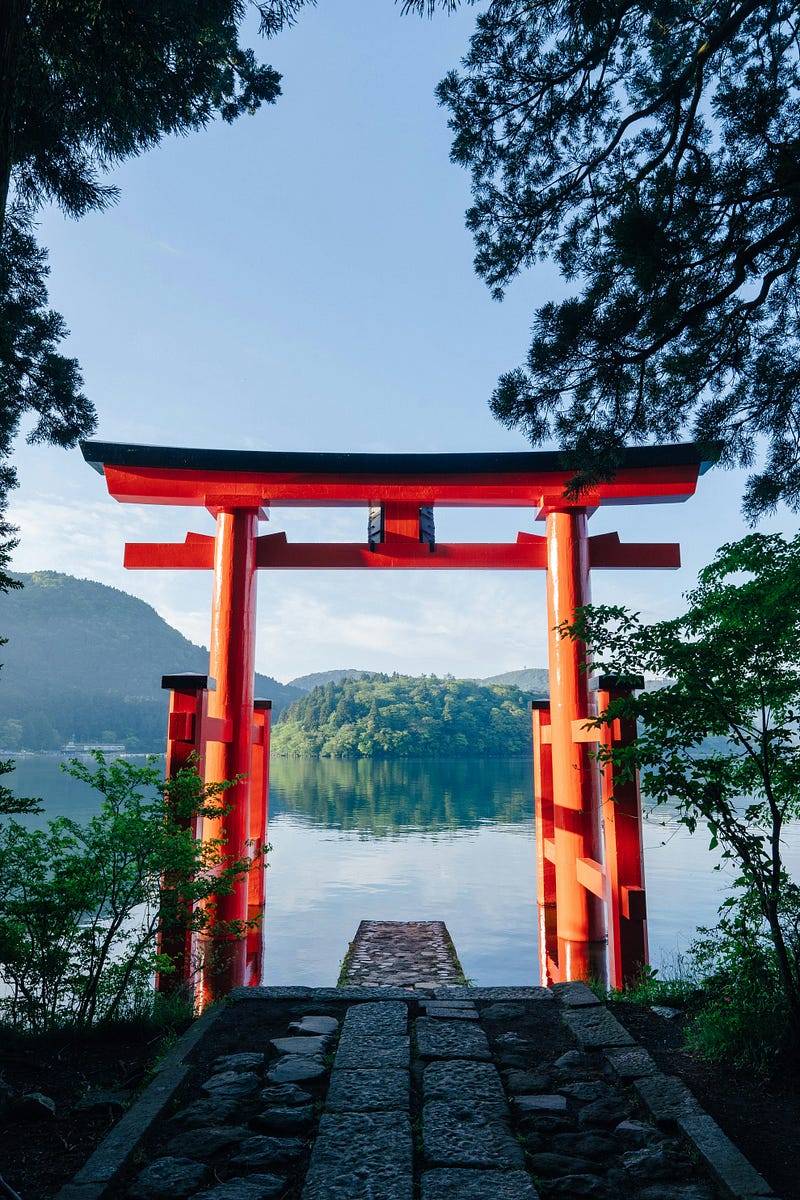
Just one?
I wondered why the waitress asked me that. Most of the places I had dined at so far had booths and spots for people dining by themselves and I assumed this place would be the same.
Once I sat down though, I realized why she was so surprised. All the tables around me had couples, friend groups, or families engaging in conversations over savory pancakes. I was the only one who was dining solo.
I was trying out a pancake restaurant in Tokyo’s Ginza District. Happy Pancake is a popular franchise in Japan known for making tasty fluffy pancakes.
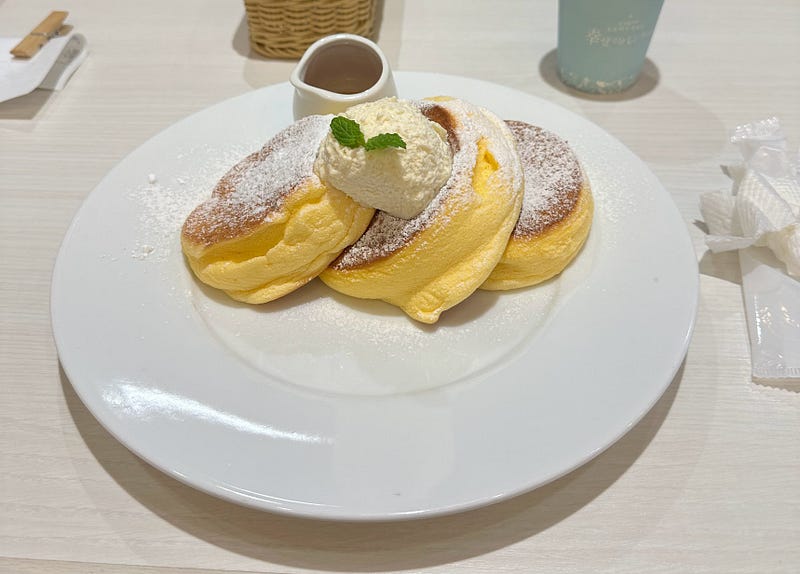
It’s a must-do if you’re visiting Japan. Wait times could go up to 3 hours but you’re required to wait, and everything else can wait.
I had planned that I was going to dine solo and I didn’t think too much of it. After all, I was going to be having fun and assumed there would be other solo travelers as well. I was so wrong.
Usually, when I eat out, it’s with friends or other people. The rare times I have dined alone were at places where others were also dining solo. So, I never really imagined or experienced what it is like to dine alone at a restaurant.
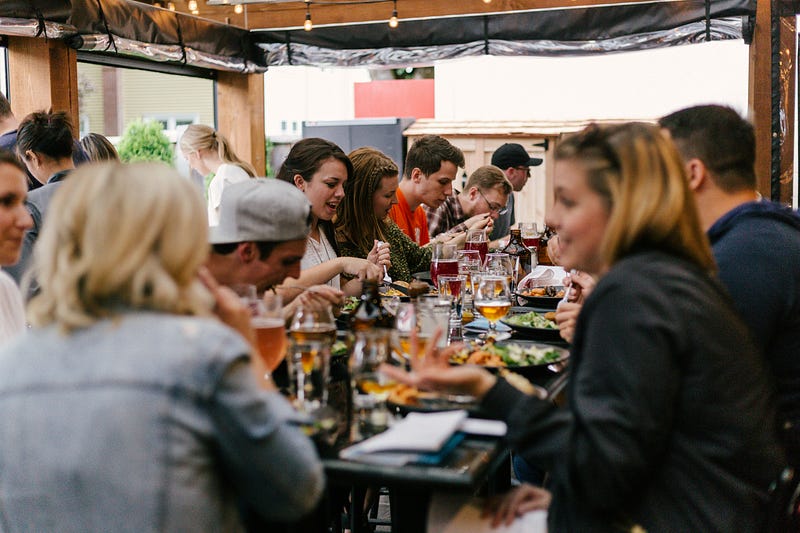
I finally experienced it. I became so self-conscious that I felt like every move I made was being intently observed and judged.
Rationally, I understood that this was all in my head, and I just had to get out of it and experience things in real-time.
Yet, despite this intellectual awareness, I couldn’t escape the sense of awkwardness.
When my pancakes came out, I ate them so quickly you would have thought I was auditioning for a food-eating competition. I didn’t even give myself time to appreciate the flavors.
I finished in less than 10 minutes and dipped immediately, having waited 2 hours to try this popular cuisine.
Truly a terrible return on investment.
Setting Oneself Up
From that point on, I sought out dining spots friendly to solo travelers, and most ramen shops fit that profile. Despite Japan’s reputation for being a popular destination for solitary travelers, groups and families dominated the tourist landscape.
I only saw or met a handful of solo travelers during my trip.
The last place I visited was Hakone, a mountainous rural town known for its hot springs and views of Mount Fuji. A must-do in Hakone is staying in a ryokan, a traditional Japanese inn offering a cultural and hospitable experience.
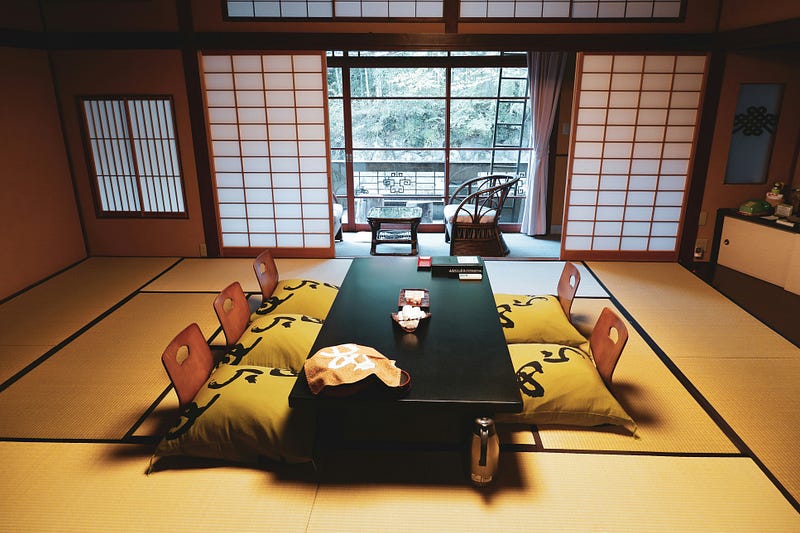
Hakone’s hot springs enhance the ryokan experience, with most ryokans featuring an onsen, a natural hot spring bath that guests can enjoy during their stay.
There are ryokans in Hakone designed for solo travelers, but I hadn’t done proper homework on which ones do and I ended up booking one suited for families and couples, which I figured out on my arrival.
The receptionist asked me where my partner was and seemed surprised when I said I was alone. I had mentally prepared myself for this moment, anticipating how awkward it would be, but I believed it was all going to be fine.
The Chopsticks Challenge
During dinner, as I was guided to my designated table, I was pleading within that it may be a discreet spot at the corner.
“Arigatou gozaimasu” I uttered, offering a slight bow as I was shown to my seat.
Despite spending almost 2 months on Duolingo, basic greetings remained the extent of my Japanese vocabulary. For more complex situations, like when I blocked my subway card, I had to rely on Google Translate to communicate with customer service.
It’s really fun how Duolingo streaks can give you a false sense of mastery of a language when you’re not really like that.
Alas, the table wasn’t in a corner. It was in the middle, surrounded on each side by families or couples having their meals.
I picked up my chopsticks and surveyed my food. A friend had advised me to practice with chopsticks at home, but I didn’t. I was like it’s all going to be fine.
At the ramen shops, I would fumble with the chopsticks but this was out of the public eye in the privacy of individual booths. They also provided spoons which eased my work.
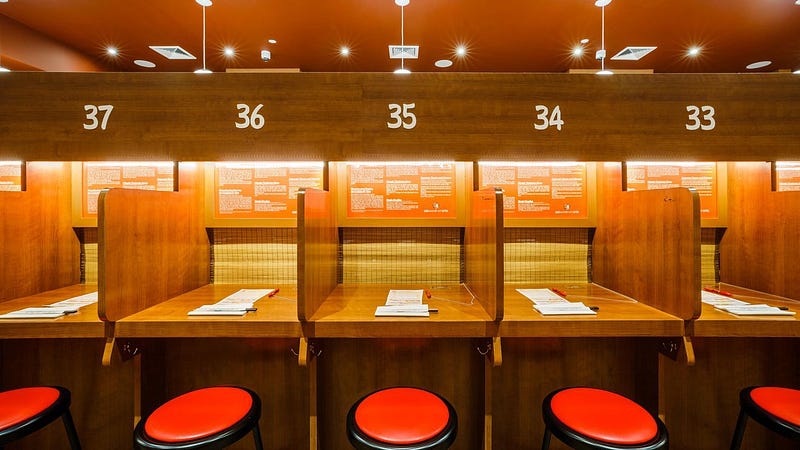
But here, I was in the presence of other folks, and my chopstick skills were about to get exposed in real-time.
My mother raised me to never leave a speck of food on my plate, and Japanese culture encourages the same as it signals satisfaction and appreciation for the food.
I had a few grains of rice left in my bowl and I was determined to finish them. With a spoon, it would have been easy, but with chopsticks, it was like playing 4D chess.
I noticed a few glances in my direction. They were probably just innocuous — the kind of looks exchanged by strangers in a public space. But it felt like I was on an imaginary stage, the fellow diners being my audience, enjoying the legendary chopstick performance I was putting up.
Self Reliance
When I was drawing up my travel itinerary, all that I anticipated was the fun I was going to have. From social media and recommendations from friends, I curated a long list of places and activities that I planned on trying.
I was certain I wouldn’t be able to fit everything into one trip and wished I had Naruto’s shadow clone jutsu to experience it all.
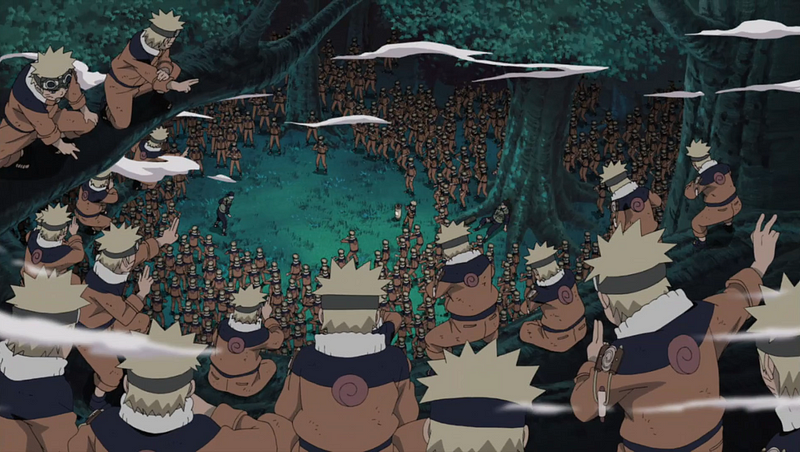
Since I was traveling solo, I had the flexibility to adjust my schedule for any spontaneous adventures I would come across along the way.
One thing that I hadn’t properly grasped was the high level of self-reliance and independence needed for a solo trip.
Of course, you have to make all the decisions and navigate unfamiliar situations by yourself. You have to transcend language barriers and cultural differences to enjoy yourself.
Learning to adapt to such situations can make you flexible and resilient.
The self-reliance I am referring to however is the mental and emotional fortitude it takes to have or create your fun, especially when external norms might be antagonistic to that.
While Japan is a popular destination for solo travelers, most tourist activities are done in groups. If you walk around or pass by some of these places, you might feel like you’re out of place.

This sense of self-consciousness popped out more when I was eating at the popular restaurants that had been recommended.
They were mostly frequented by families or couples, and I would often eat quickly to escape the discomfort. It took a while to dial in, gain composure, and enjoy myself despite it.
I knew that when visiting some of these places, I would be alone and I had made peace with that. In reality, when it came to it, all the stoic tenets that I had in my mind seemed to crumble in the face of these solitary experiences.
I found myself caving to the social stigma and the imaginary scenarios that my mind created about the different situations I was in.
My Epiphany
Human beings are naturally social creatures. We form tribes and strive to connect with others, sharing moments of happiness, suffering, and even just plain existence.
Life is more interesting in that sense, as we get to experience it through the perspectives of those around us apart from that of our own.
This deep-rooted need for social connection often makes solitary pursuits feel awkward, especially in the presence of others. This is part of the reason that there’s an associated social stigma in engaging in solitary activities.
Most people will get the perception that they’re being pitied for being alone or judged for a perceived awkwardness.
We suffer more from imagination than from reality.
This quote from Seneca applies broadly to different segments of our lives.
Human beings tend to catastrophize and imagine the worst-case scenarios, causing unnecessary mental turmoil and anxiety. This served as well in our ancient pasts to escape danger in our relatively hostile environments.

This trait still exists today, even when these negative situations are unlikely to occur, and even if they do, they are usually not as bad as we might imagine.
All the different scenarios I worried about were merely imaginations in my head. It’s funny because I couldn’t peer into people’s minds to assess the accuracy of these thoughts.
Yet, there I was, struck with the unease of what these imaginations had created, spoiling the fun I sought to have. You might have experienced the same in different circumstances. I definitely wouldn’t have felt the same way if I were with people I knew.
However, in life, there will be seasons when you want to do something, and those you would like to do it with are either unavailable or uninterested.
While you have the option of postponing to a later date when there is availability or a slight interest in it, sometimes you could just go for it and pursue it alone.
As social as we are, we have our individualities, and we have unique interests.
Not all your friends will want to attend a country music concert, take a pottery class, play pickleball, or do stand-up comedy.
And that’s OK.
Engaging in solitary activities can be daunting, especially in unfamiliar territory where you might feel uneasy. But often, this sense of awkwardness is just in our heads. People are too preoccupied with their concerns to focus on you.

And even if they do notice, and even if they do speak, it doesn’t matter.
You’re doing something fun for yourself, and that is what matters.
It’s not easy, and it is almost like a skill that takes time to develop. It could be a good exercise to develop resilience and reliance on the self for fun despite your external environment and the imaginary scenarios that your mind might create.
This doesn’t mean that you should abandon friends and pursue the path of solitude to become “mentally strong and infallible”.
Not at all. We are human at the end of the day, and we are bound to experience these uneasy emotions from time to time.
All I am saying is that when those seasons of solitary expedition come, we should welcome, engage, and enjoy them despite the unease that might stir up within.
Engaging in what piques our interests in solitude is an act of self-love and self-acceptance.
Quite ironically, such moments teach us to cultivate a deeper appreciation for the relationships we already possess, making them more valuable and impactful.
After exploring a few of the articles on your web page, I honestly appreciate your way of writing
a blog. I bookmarked it to my bookmark webpage list
and will be checking back in the near future. Please visit my website too and tell me how you feel.
Review my page; John E. Snyder